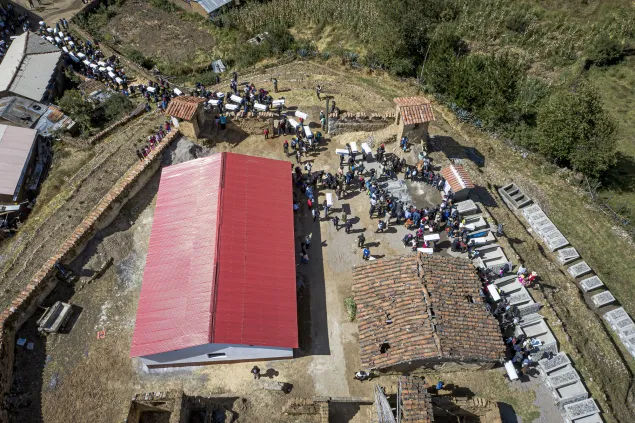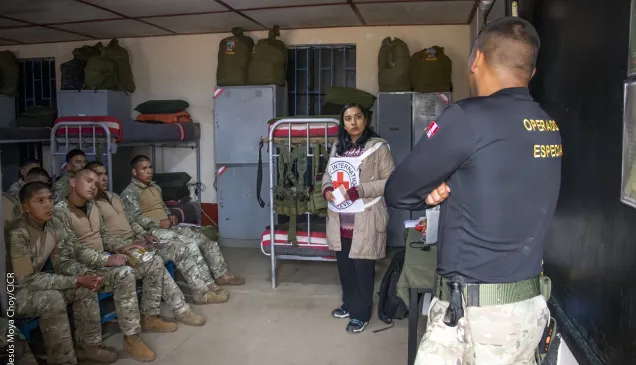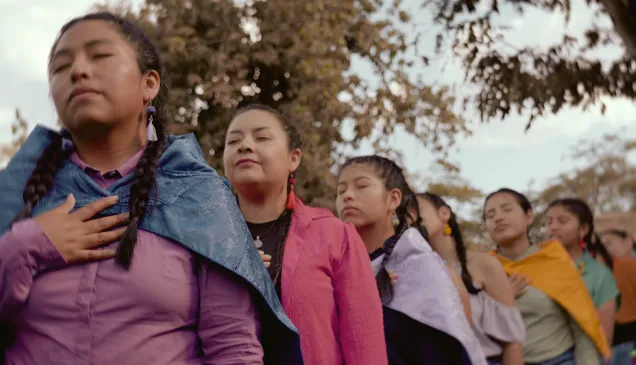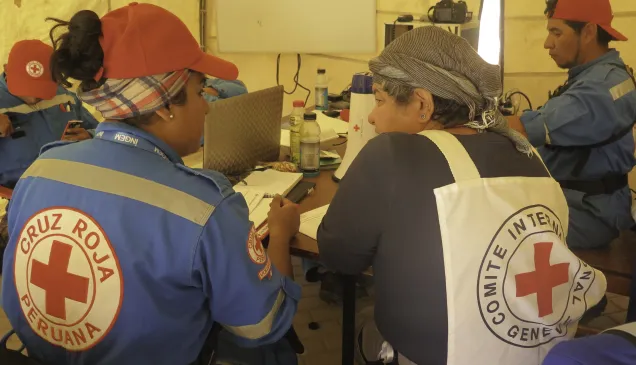Peru: Dignified burial in Accomarca after almost four decades
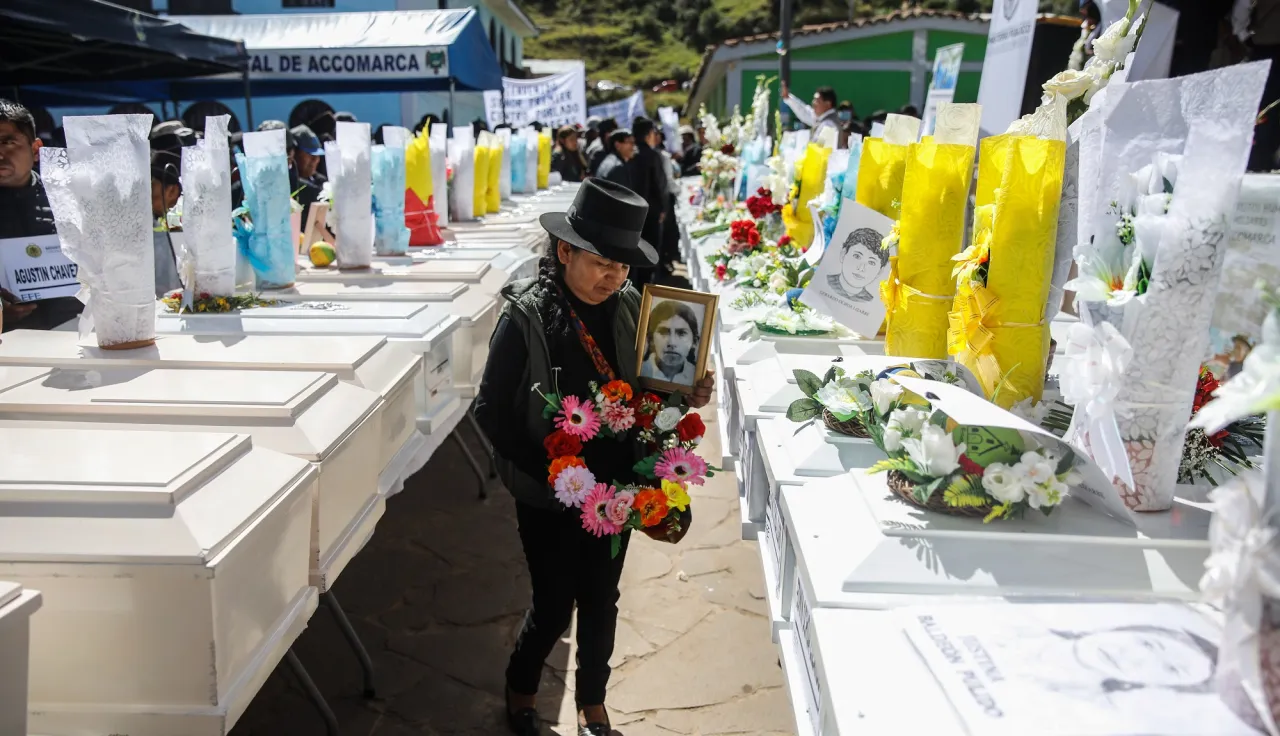
The families of 80 people from the community of Accomarca in Ayacucho, who went missing almost four decades ago during the internal conflict in Peru that lasted from 1980 to 2000, were finally able to give their loved ones a dignified burial.
On Friday, 20 May, the remains, clothes and personal effects of victims of the internal conflict, who had been missing for over 35 years, were returned to their families in the district of Accomarca in Ayacucho so that they could give them a dignified burial. Most were victims of the incident that occurred in August 1985, when 69 men, women and children were killed and their bodies burnt.
"The state of the remains made it difficult to recover and identify all the victims, which meant that only some families received the identified bodies of their loved ones. In other cases, where a positive identification was not possible, the families were presented with a symbolic casket by the authorities, through the Office of the Attorney General and the Missing Persons Unit of the Ministry of Justice and Human Rights," explains Jean Philippe Rossier, Protection Coordinator at the International Committee of the Red Cross (ICRC).
Acting on its mandate to alleviate human suffering, the ICRC has been supporting the efforts of the Peruvian government and civil society in this matter, ensuring that families receive psychosocial care when they need it, are treated respectfully and have a place to bury their loved ones. Throughout the search process, which spanned more than three decades, we listened to the families of Accomarca and responded to their needs.
We were present in 2020 when the authorities exhibited clothes recovered at the site where the remains were exhumed for families to view. When they recognized clothes as belonging to their loved ones, DNA testing was carried out to make a positive identification.
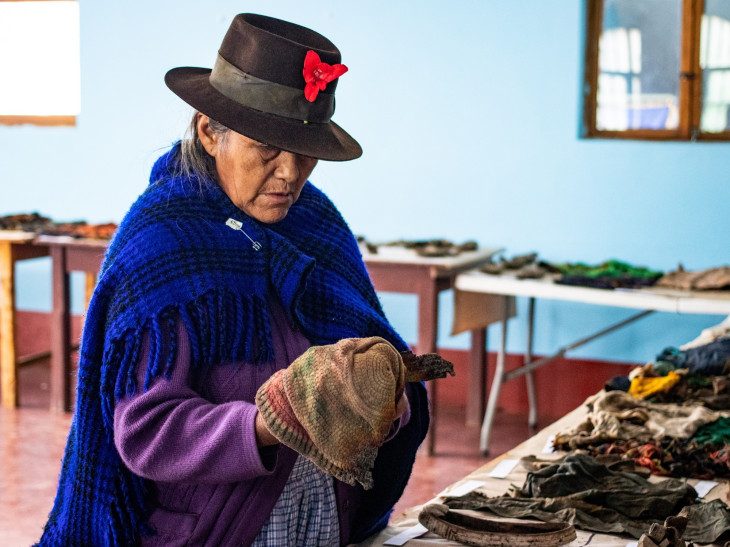
During the garment exhibition, family members look at each piece trying to remember if it belonged to their loved one.
(Photo: Jesus Moya Choy/ICRC)
"Special attention must be paid to those families that do not receive the remains of their loved ones. This is why support sessions for families are so crucial at all stages of the search process to help them cope with the feelings of loss and uncertainty that will not go away because they need to know the whereabouts of their missing family member, identify the body and give them a dignified burial before they can begin the mourning process," observes Rossier.
The Accomarca case
On 14 August 1985, 69 people were executed in the community of Accomarca, located in the Peruvian Andes, four hours from Ayacucho, the capital of the department of the same name. More than 20 of them were children, women or elderly people. Some days after, the survivors buried the charred remains of their loved ones.
Witnesses and relatives of the victims reported what had happened to the authorities and also informed the media. Several days later, a number of these witnesses were found dead.
After a lengthy trial, the families got the outcome they had been fighting for, with the conviction of those responsible for the killings, some of whom are now in prison.
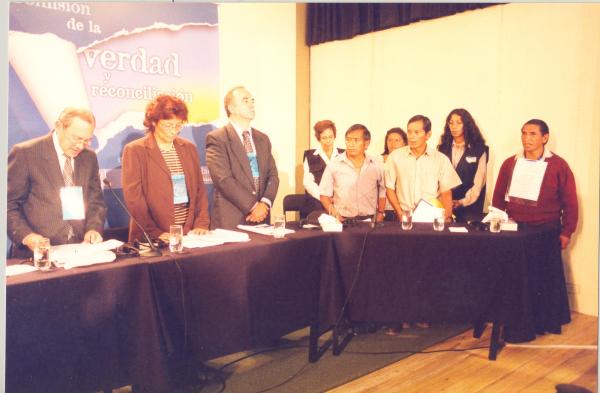
The ICRC supported the relatives of the Accomarca victims when they had to travel to Lima to testify before the Truth and Reconciliation Commission (CVR) in 2002.
(Photo: LUM File/Ombudsman's Office)
This legal battle was extremely draining for the families because it dragged on for so long, heightening the constant suffering and uncertainty caused by the disappearance of a loved one. However, they joined together, forming an association of families, in which they found the support and solidarity necessary to remain strong and united throughout the trial and the search for their loved ones.
It was therefore important for the remains to be returned to the families in a joint symbolic act for all 114 of those who disappeared in connection with the incidents that occurred in Accomarca.
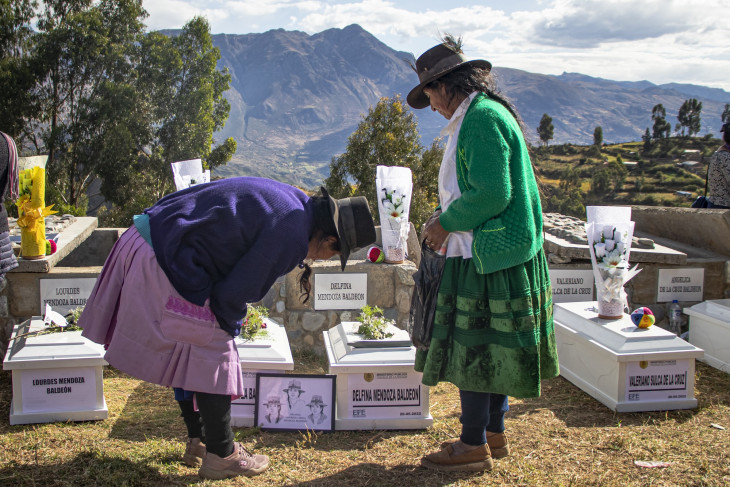
People who did not have a portrait received one illustrated by the "Portraits for Memory" project. The children had a ball placed over their ossuaries.
(Photo: Jesus Moya Choy/ICRC)
The ceremony at which the remains were returned to the families was held at an old military base that has been converted into a sanctuary in memory of those who died. Relatives can now visit the place where their loved ones have been laid to rest and put flowers on their grave or light a candle for them.
The building was restored to become a sanctuary of memory.
(Photos: Jesús Moya Choy and Sebastián Castañeda Vita/ICRC)
Teófila Ochoa, a survivor of the armed violence, gives a poignant account of events: "From the moment that massacre took place, my life changed completely because I lost my mother, my siblings and many members of the community. I was 12 at the time of these events, which plunged the village into grief. I promised my mother that I would find her one day and bring her back to my village. Many people supported me, giving me the strength I needed to carry on, and today I can finally give her a Christian burial."
In Peru, according to the National Missing Persons Register (RENADE), an estimated 19,200 missing people have yet to be found (out of a total of 21,918), an ongoing challenge that needs to be resolved to give families closure and uphold their right to know the fate and whereabouts of their missing loved ones and, where possible, give them a dignified burial.
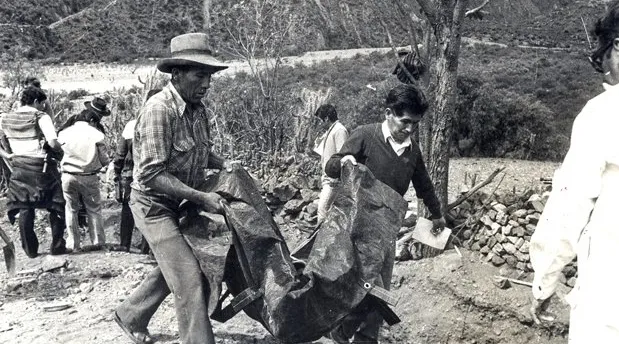
On August 14, 1985, 69 residents of Accomarca were victims of violence.
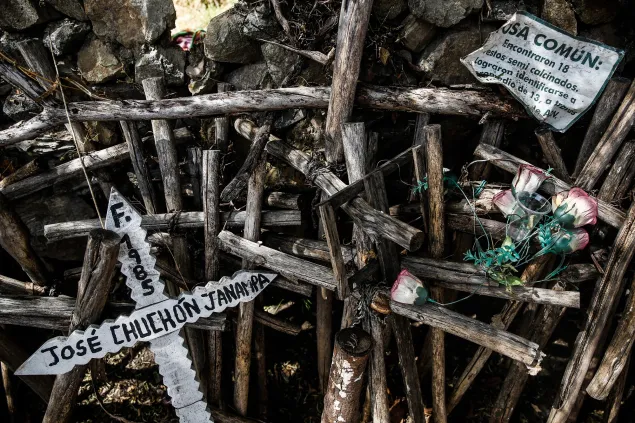
Days after the events, the survivors buried the charred remains of their relatives.
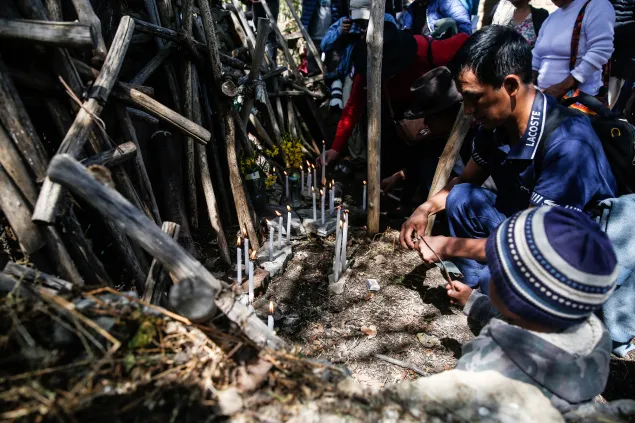
The families visited the area of Locllapampa, where their loved ones were disappeared.
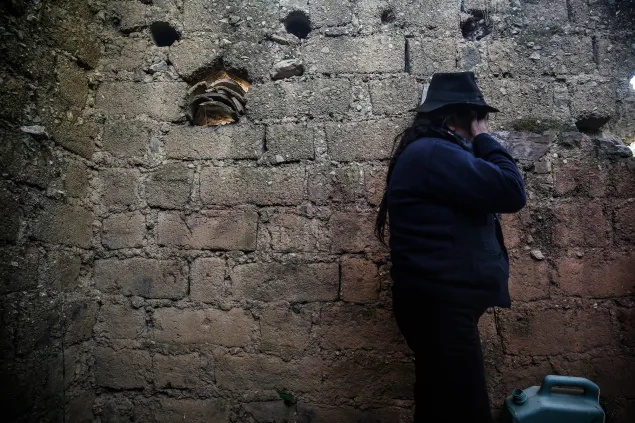
The house that was burned is now a sanctuary for them.
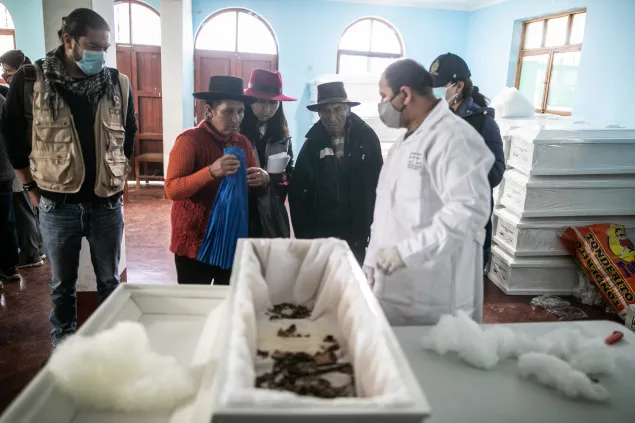
The ICRC accompanied the families during the forensic investigation.
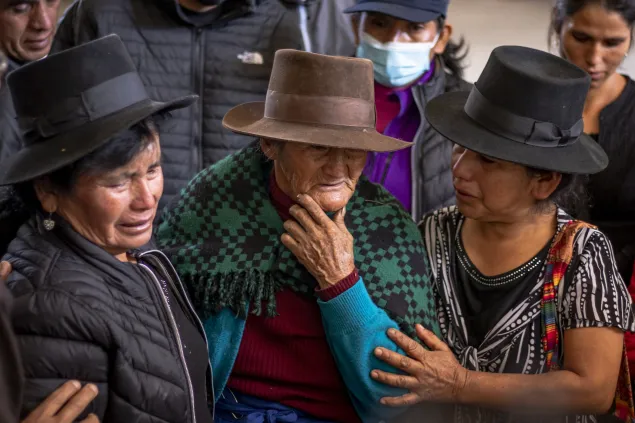
The process of more than 30 years has affected their mental health.
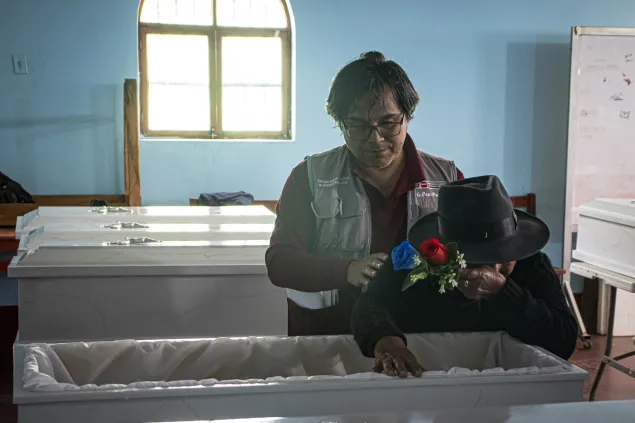
Some people gave a symbolic goodbye, because they did not receive identified skeletal remains of their loved ones.
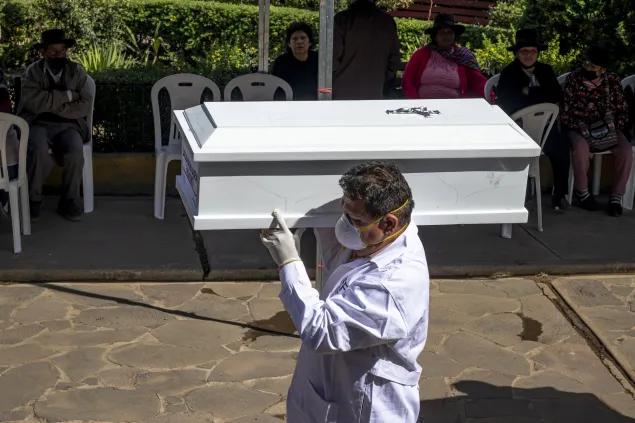
The work of identification and delivery of the bodies was in charge of the Specialized Forensic Team of Ayacucho.
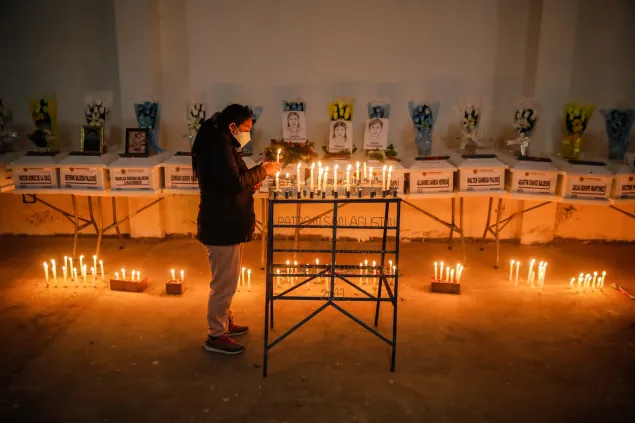
At night, they watched over their loved ones in the church of the Accomarca district.
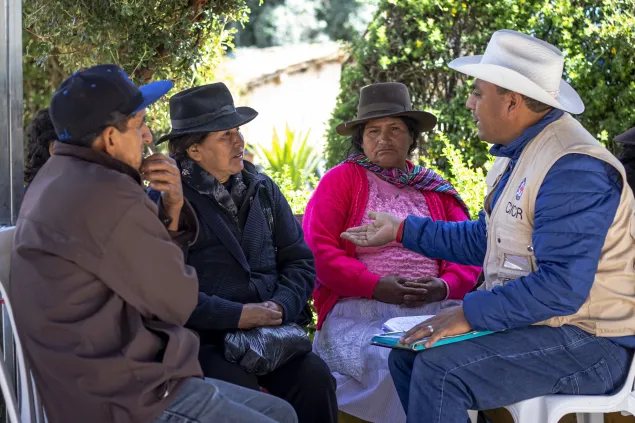
The ICRC assisted the relatives in their travel to the burial and provided psychosocial support.
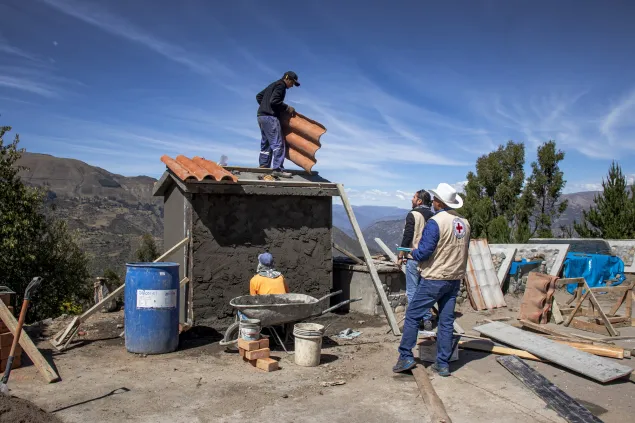
In addition, we contribute to the construction of additional niches for decent burial.
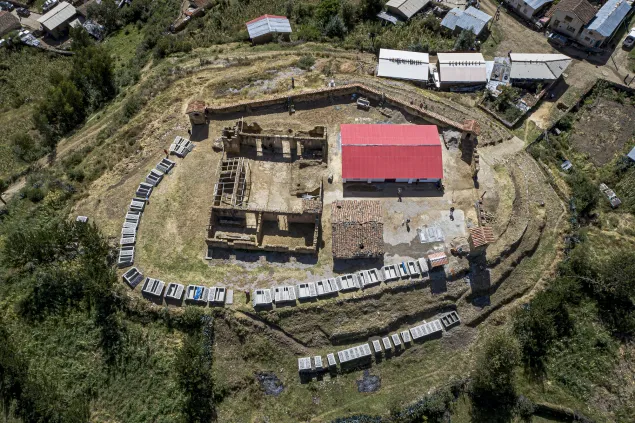
Aerial shot of the old barracks that became a sanctuary of memory for the people of Accomarca.
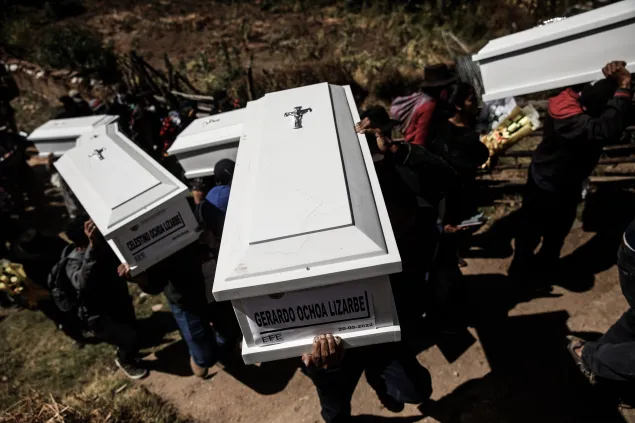
The relatives made a journey with the bodies to the heights of the sanctuary.
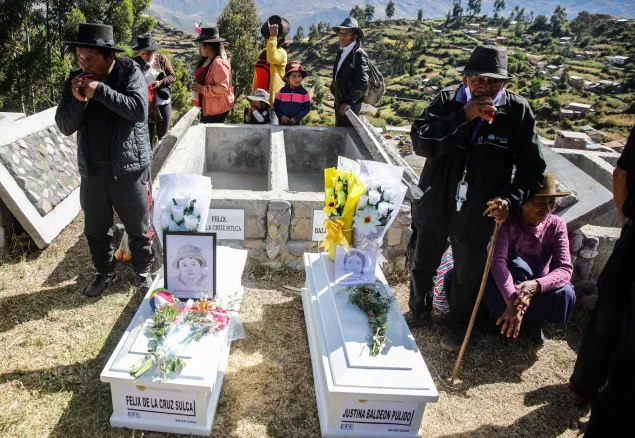
All generations came together in the sanctuary to give a decent burial to their loved ones.
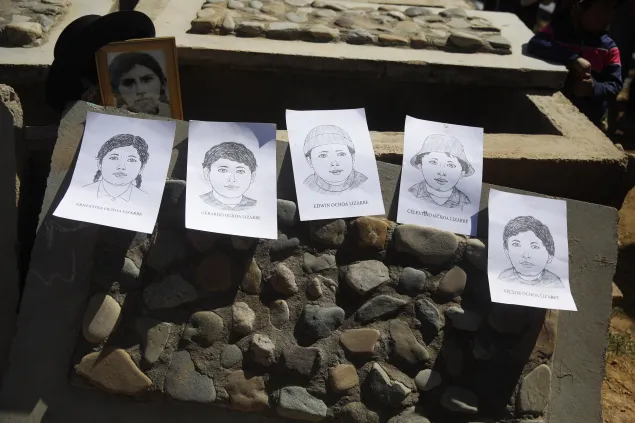
Illustrated portraits of victims who did not have a photograph. More than 20 were children and several women and elderly.
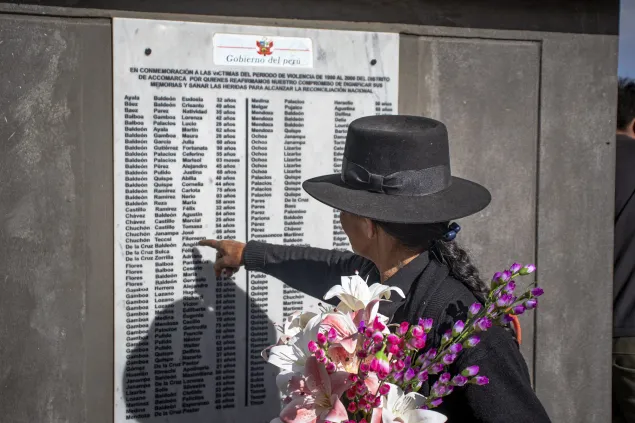
In the sanctuary where they were buried, a plaque with their names and ages was placed.
